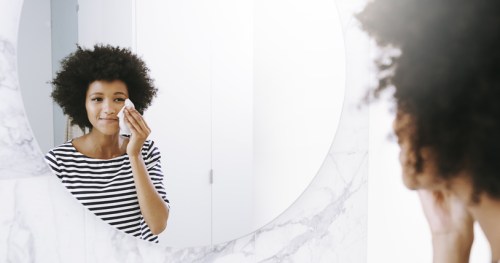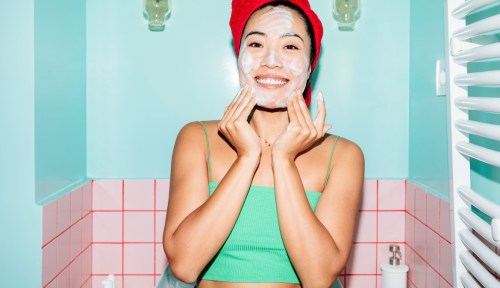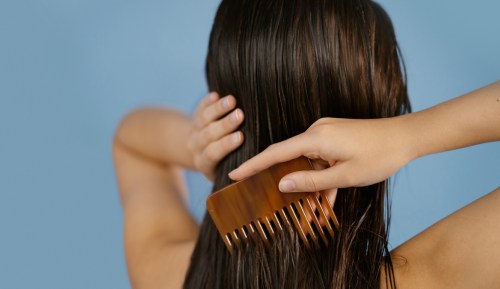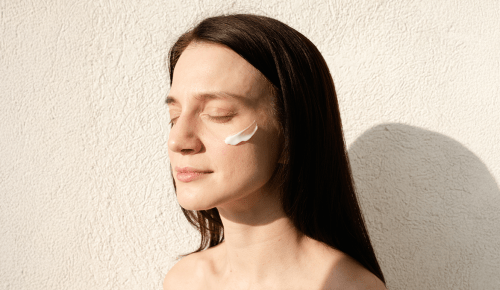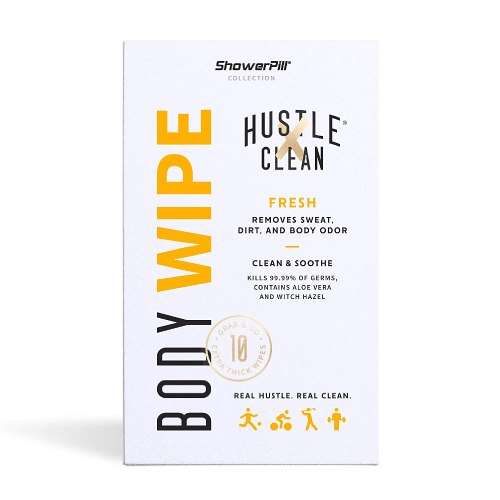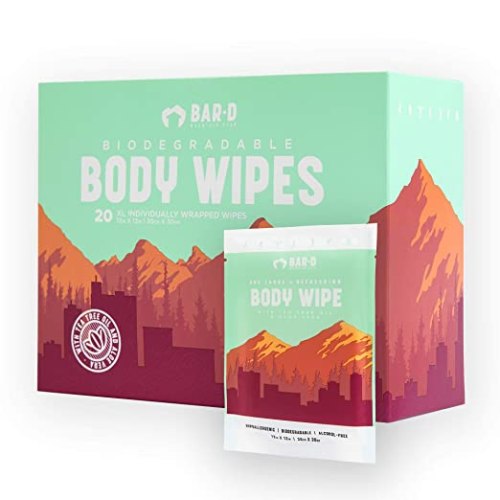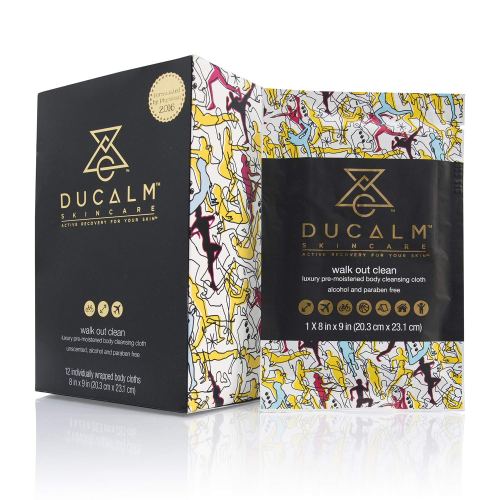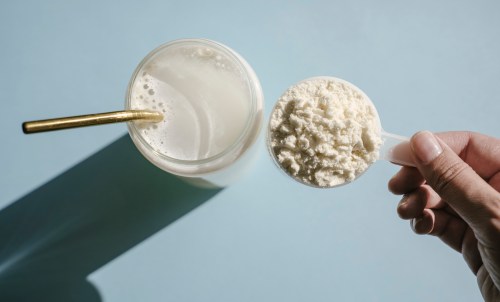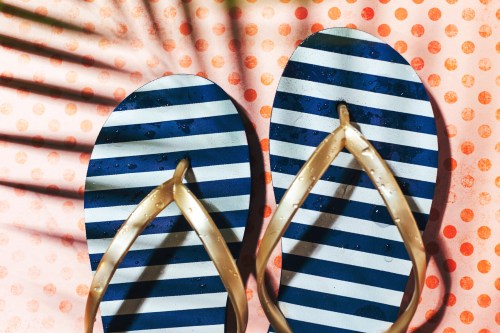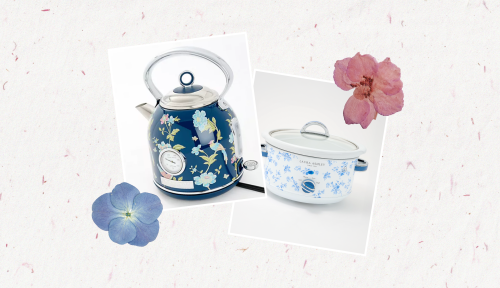Our editors independently select these products. Making a purchase through our links may earn Well+Good a commission
I’ve worked from home long before the days of social distancing, and because I often go days without seeing people outside of my household, I definitely have become too complacent to shower daily. In fact, it’s even more common that I skip a soak now that I’ve become a mother. I’m not alone; celebrities like Jake Gyllenhaal, Brad Pitt and Charlize Theron have all had their bathing routines scrutinized when it was revealed that daily cleansing wasn’t a priority. Enter: shower sheets, a no-water way to cleanse your skin in between washes that kind of looks like an oversized face wipe.
Experts in This Article
dermatologist and founder of Surface Deep
board-certified dermatologist with Riverchase Dermatology
One recent morning, as I swiped one of these cleansing cloths over myself to hold me over until my next soak, I wondered, Is this a viable substitute for a shower or am I just adding to the residue already on my skin? I decided to seek out the experts to find out if shower sheets get you clean as well as the real thing…or, at least, a close second.
How often should you shower?
There is no hard and fast rule about how often you need to shower. Roughly two in three Americans showers at least once per day, but there isn’t a body of research that gives a concrete recommendation as to how many showers per week are necessary. Unless you have a specific skin condition, the American Academy of Dermatology Association (AAD) only has guidance for bathing newborns and children. According to many dermatologists, recommendations will vary by person, but in general showering every day isn’t necessary.
“Unless you are sweaty or dirty, showering every other day should be plenty,” advises Lucy Chen, MD, FAAD, a board-certified dermatologist at Riverchase Dermatology in Miami, Florida. “If you have to shower every day, try to stick to a 5- to 10-minute shower, as long showers can strip your skin and hair of essential moisture and oil.”
This, of course, is a general recommendation as there are a number of factors that can dictate the frequency of your showers; according to Alicia Zalka, MD, a board-certified dermatologist and founder of Surface Deep. Factors include skin type and even time of year. “For a typical person who spends an active day, which involves exposure to pollution, oils, dirt, and even exposure to viruses and bacteria that lurk around, a daily shower is ideal,” Dr. Zalka notes.
Dr. Zalka also acknowledges that for many people, there are times you may find yourself without access to a shower—whether you are preserving water, don’t have access to clean water, have a disability or have a skin condition that is irritated by frequent bathing, among others—in which case, you may be on the hunt for a shower alternative. The question is: Do shower sheets serve as a suitable shower replacement?
When—and how—should you use shower sheets?
When used correctly, shower sheets are definitely an option to get you clean and smelling fresh when you don’t have easy access to or time for a shower? It’s a dermatologist-recommended option, in fact.
“If you are not able to take a shower after a workout or being outdoors, body wipes will deodorize and clean decently until your next shower opportunity,” Dr. Chen says. “They can remove dirt, body odor, and sweat, and are safe for cleaning all areas of your body.”
Because these don’t involve rinsing post-swipe, Dr. Zalka notes that some chemical and fragrance from the sheets will remain on the skin, so there are some areas you shouldn’t be using shower sheets (even if you don’t have skin conditions). Unless instructed otherwise by a professional, this includes your face, hair, and anus. “You should avoid using wet wipes around the anus, as they can cause allergic reactions to the delicate skin in the area,” says Dr. Chen. “The moisture that is left from wet wipes can also cause a change in bacteria and lead to irritation if used around the anus area.”
What skin issues can result from shower sheets?
Besides irritation to the anus, other skin issues that frequent use of shower sheets can lead to include clogged pores, which can lead to breakouts. Dr. Chen explains this is because shower sheets are not completely effective at removing excess oil from the skin. Additionally, because there is the potential of residue left behind from the sheets, there is cause for concern if you regularly experience skin irritation or sensitivity.
“If your skin is prone to rashes or allergies, this may lead to potential for rashes.” explains Dr. Zalka. This is often because of the fragrance found in body wipes that can cause skin irritation.
What ingredients should your shower sheets include?
Because shower sheets serve as an easy replacement for those times that hopping in the shower just isn’t possible, there are some things to be mindful of when reading the list of ingredients. Dr. Chen recommends looking for shower sheets that are infused with aloe and vitamin E. Make sure yours are alcohol-free, non-comedogenic, and fragrance-free. These ingredients are the least likely to irritate the skin and strip it of moisture.
“I like to look for the fewest chemicals and preservatives, clean ingredients, vegan, non-animal tested, and biodegradable sheet options,” adds Dr. Zalka. Below are three body wipe options that tick all these derms boxes.
Shower sheets that are dermatologist-recommended include:
The Body Wipe by Hustle Clean, 10 Count — $10.00
Newsflash: You Can Wash Your Hair Every Day, According to This Haircare Brand Founder

Scarlett Johansson’s Morning Skincare Routine Is All About Simplicity—Here’s How She Starts Her Days Out Right

Tons of Elizabeth Arden Skincare Finds Are on Major Sale at Walmart Right Now—Here’s What a Dermatologist Is Eyeing
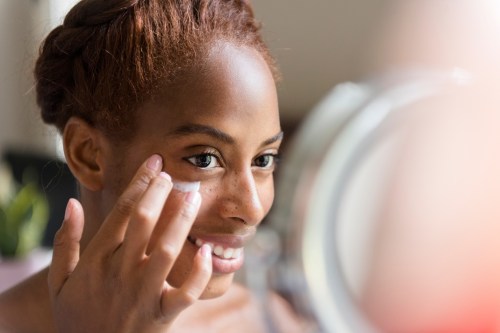
Bar-D Cleansing Face and Body Wipes, 20 Count — $18.00
Ducalm Skincare Walk Out Clean Shower Wipes, 12 Count — $13.00
Oh hi! You look like someone who loves free workouts, discounts for cutting-edge wellness brands, and exclusive Well+Good content. Sign up for Well+, our online community of wellness insiders, and unlock your rewards instantly.
Sign Up for Our Daily Newsletter
Get all the latest in wellness, trends, food, fitness, beauty, and more delivered right to your inbox.
Got it, you've been added to our email list.
